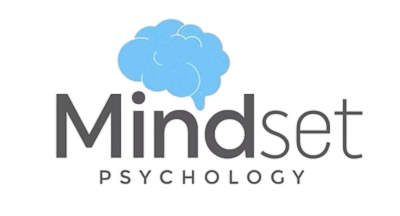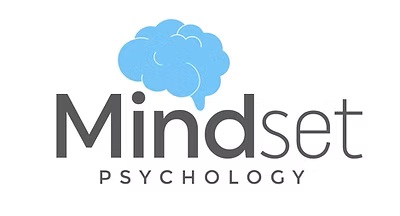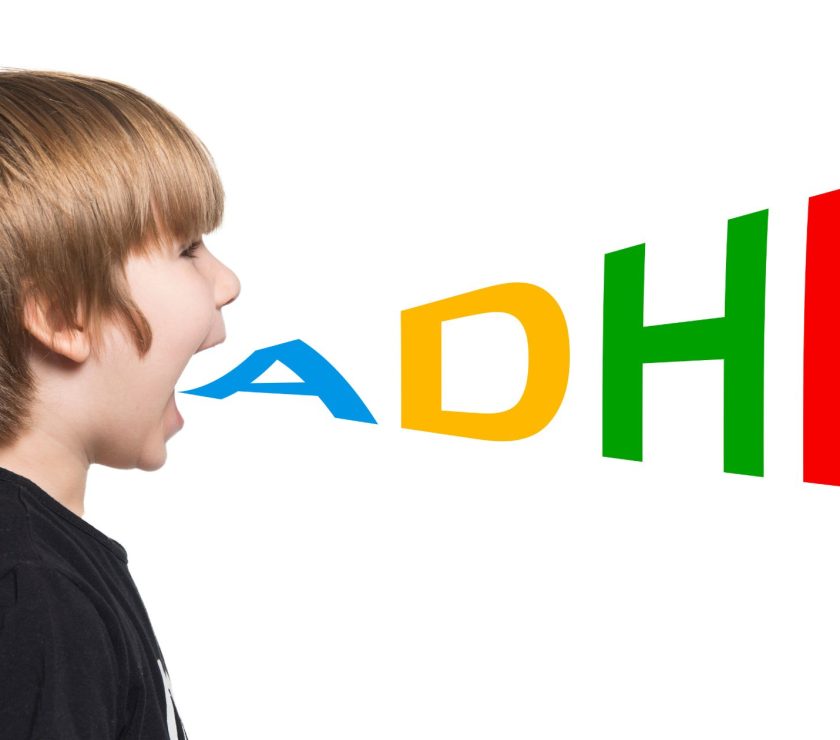Attention deficit/hyperactivity disorder (ADHD) is one of the most common neurobehavioral disorders amongst children and adolescents that can extend into adulthood. Its symptoms entail hyperactivity, impulsivity, and inattention. Hyperactivity causes a person to excessively and constantly move, or talk. Struggling with hyperactivity can cause one to fidget, talk out of turn, and cause the feeling of always having to be on the go. Impulsivity is the inclination to act without thinking. It is not to be mistaken with disrespect or impoliteness. Some examples of this would be blurting out comments, risky behavior, and making spontaneous decisions. Inattention is the inability to properly focus on someone or something. A person that struggles with inattention gets easily distracted, has difficulty following instructions, loses important belongings, and struggles to organize and complete tasks.
ADHD is also often associated with co- occurring disorders, which include learning disabilities, anxiety, depression, speech problems, mood swings, substance abuse, etc. As many as 80% of adults with ADHD have at least one coexisting psychiatric condition. And 78% of children with ADHD had at least one other co- occurring psychiatric disorder. The genes inherited from parents play a role in the development of the disorder, ultimately in most cases 2 ADHD tends to run in a family line. Beside genetics the causes of ADHD are environmental toxins, mental health conditions, anatomy and function of the brain and prenatal exposure.
To tackle the challenges of a client with ADHD the therapist narrows down the symptoms in order to create a treatment plan personalized specific to the clients needs. Alongside this they provide coping strategies that will help aid the patient in managing their symptoms and navigating their challenges with ADHD more adequately.
ADHD therapy has a huge impact on individuals who battle with this disorder. And ADHD therapists in Huntington in particular have really helped their clients experience breakthroughs that enhance their quality of life. Huntington ADHD therapists utilize a variety of techniques to help their clients manage their symptoms. These techniques include cognitive behavioral therapy, mindfulness- based cognitive therapy, and behavioral interventions.
II. The Role Of ADHD Therapists
A. Understanding ADHD
ADHD therapists have the capability to support patients with ADHD by using their knowledge and expertise. Therapists use structured interviews, questionnaires, and behavioral assessments to gather detailed information about the clients challenges/symptoms. Collecting this data is important in order to conduct a proper evaluation of the symptoms to prevent an incorrect assessment of the disorder. This process commonly lasts over multiple visits and may involve input from numerous professionals, such as, psychiatrists, and psychologists to ensure a precise understanding of the client’s condition. This thorough approach helps therapists to identify the specific type of ADHD the individual has, as well as any coexisting disorders. The 3 thoroughness of this approach is what beautifully develops the treatment plan best for the client’s needs.
B. Personalized Treatment Plans
In therapy individuals are encouraged to talk about their feelings. Being able to express feelings helps one to open their eyes to the depths of what they have been experiencing. A technique used by ADHD therapists is a type of talk therapy called cognitive behavioral therapy. The struggle of living with ADHD can hinder one’s focus, concentration, and productivity, which can decrease one’s motivation to achieve their goals. Cognitive behavioral therapy can teach strategies that combat these issues and encourage favorable changes in their behavior.
Medication can ease the symptoms of ADHD, but it will not provide you with the skills you need for lasting change. Techniques used in cognitive behavioral therapy for ADHD: reduction of procrastination behaviors, navigating distractions, organizing and planning, and psychoeducation. Psychoeducation is essentially when the patient/client is taught about their disorder, this includes, the treatments, the resources and coping mechanisms. For example, an ADHD therapist would explain ways ADHD can affect one’s behavior, emotions, and thoughts. And as they break down the process of the therapy they will explain more about ADHD.
Mindfulness techniques can help a person with ADHD to control their attention. ADHD can cause one to be mentally overstimulated and the goal of mindfulness treatment is to reduce this and refocus the clients attention. Increasing focus helps to occupy thoughts with the present and avoids drifting thoughts that cause distraction.
Behavior intervention is another treatment used to treat attention deficit hyperactivity disorder. It is effective in helping one control their impulse behaviors. Strategies taught in 4 behavior intervention are advised to be reinforced at a young age and can help parents of children with ADHD to excel in their academics, have healthy relationships and accomplish their goals.
C. Support for Families and Caregivers
ADHD therapists play a huge role in enhancing the quality of life for not only their clients diagnosed with ADHD but also their families and caregivers. They do this by providing them with an effective approach to manage the symptoms of the client and offer emotional support to aid with the challenges of caregiving. ADHD therapists create practical plans and work closely with families to develop structured and supported environments for individuals with ADHD. This reduces conflict and improves communication. They also provide ongoing guidance to accommodate these strategies to the evolving needs of the individual, while ensuring that families are properly equipped to support their loved ones successfully.
III. Therapeutic Approaches Making a Difference
A. Cognitive Behavioral Therapy (CBT)
Studies show that cognitive behavioral therapy helps individuals with ADHD better manage their symptoms by identifying and modifying negative thought patterns and behaviors.. CBT is extremely beneficial in reducing impulsivity, enhancing organizational skills, and improving focus. This is done by breaking down large tasks into smaller and more manageable steps. With this approach individuals with ADHD can learn to better organize their thoughts and 5 decrease feelings of being overwhelmed. Staying focused and avoiding distractions is a hard task for those who suffer with ADHD and cognitive behavior therapy techniques like mindfulness and time management can help individuals avoid distractions and accomplish goals.
B. Mindfulness & Relaxation Techniques
Mindfulness and relaxation techniques are used in ADHD therapy to help individuals regulate their emotions. It teaches clients how to understand that their emotional states are momentary and will pass, it can approach in a controlled and gentle manner. Mindfulness and relaxation techniques help patients to resist impulsivity and act on emotions in a gentle way. Studies show that even short term use of mindfulness and relaxation techniques have helped individuals to improve dealing with their emotions in a healthy manner. Meditation is also useful in this technique and can help decrease psychological issues. “For example, a group that received five days of meditation training (20 minutes per day) reported improvement on measures of anxiety, depression, anger, and stress-related cortisol in comparison to an active treatment group (Tang et al., 2007). In another study, those who received five weeks of mindfulness training (5-16 minutes per day) exhibited shifts in frontal electroencephalographic asymmetry patterns associated with positive, approach-oriented emotions in comparison to a waitlist group (Moyer et al., 2011).”
C. Behavioral Interventions
6 Behavioral interventions play a major role in helping clients with ADHD learn effective coping mechanisms that improve their daily lives. These interventions have structured techniques that modify behavior and reinforce positive actions while reducing unwanted behaviors. Therapists use a vast amount of strategies to reinforce positive behaviors such as the use of rewards when a child with ADHD successfully completes a task or controls their impulsives. Rewarding this behavior encourages desirable behavior. Therapists also do something called behavior modeling, in this the therapist will demonstrate the appropriate behaviors for the individuals with ADHD to imitate. Therapists also work with parents and teachers to create a consistent behavior management plan that their client can apply no matter the setting and make sure positive behaviors are being reinforced at school and home.When these behavioral strategies are implemented consistently it can bring significant improvements in the management of symptoms and their experiences in their daily lives.
IV. The Impact of ADHD Therapy On Daily Life
A. Improved Academic And Professional Performance
Take the Next Step Toward Healing
You don’t have to navigate life’s challenges alone. Our Long Island therapists provide a safe, supportive space for you to heal and grow.
ADHD therapy is key to helping individuals enhance their professional and academic performance. Therapy helps improve their time management, organizational skills and focus. CBT and behavioral interventions target these exact obstacles. They are used to teach individuals how to maintain a consistent routine by breaking tasks into more manageable steps and prioritize responsibilities. This can help with meeting deadlines and staying on track more successfully. 7 Additionally these techniques help improve concentration which will allow them to better focus on tasks and reduce distractions in both academic and professional settings.
Students who have previously battled with disorganization and procrastination have been able to change this by learning how to maintain organized notes and have effective study schedules. Professionals who suffer from ADHD found it difficult to manage workloads and adhere to deadlines have developed better time management strategies after working with an ADHD therapist.
B. Enhanced Social Relationships
Therapy can help individuals with ADHD improve their social skills, and enhance communication which leads to stronger relationships with their family, peers and colleagues. Techniques like social skills training and role- playing can enable individuals to better understand social cues. This can help with engagement in meaningful interactions, and controlling impulsive behaviors, which are very important for forming and maintaining relationships. Therapy can also help individuals with ADHD address underlying issues like social anxiety and low self esteem to navigate social interactions more effectively. This helps them with controlling emotional responses and providing the confidence that is needed to properly interact with others.
C. Increased Self- Esteem and Confidence
Therapy has the ability to empower those with ADHD by helping them manage and comprehend their symptoms. Comprehension of symptoms can lead to increased self- esteem 8 and confidence. Through therapeutic interventions like CBT, behavior intervention, and mindfulness practices individuals develop strategies and cope with challenges by recognizing their strengths and cope with challenges that come with the disorder. This understanding gives them the confidence to approach tasks and social situations with self- assuredness and reduce negative feelings that ADHD can cause. As individuals gain better control over their symptoms, they experience a positive change in the way they view themselves and have increased motivation. ADHD therapy can shift one’s view of their self worth and help one overcome pessimistic feelings that were once holding them back from becoming a better version of themself.
V. Why Choose Mindset Psychology for ADHD Therapy in Huntington
A. Introduction to Mindset Psychology
Mindset Psychology is a leading provider of mental health services in Huntington that specializes in ADHD therapy. At Mindset Psychology, we are committed to providing compassionate, evidence-based care that makes a meaningful difference in clients’ lives. We offer a range of solutions to help individuals with ADHD manage their symptoms and improve their quality of life. Our solutions include but are not limited to: comprehensive evaluations, behavioral therapy, and family therapy. Our clinicians are deeply committed to their work and continuously keep themselves up to date on the latest therapeutic research. At Mindset Psychology we invest in their development by providing ongoing training and resources, which ultimately enhances the quality of care we deliver to our patients.
B. Expertise and Experience At Mindset Psychology therapists are highly qualified and bring comprehensive expertise in management of ADHD across different age groups ranging from children to adults. Their expertise is composed of advanced degrees in the field of psychology and specialized training in ADHD treatment, such as CBT, behavioral interventions, and mindfulness practices. Many of our therapists have years of experience working specifically with ADHD patients, which allows them to understand the unique challenges that are associated with the disorder throughout different life stages. This deep understanding equips our therapists to deliver effective treatment strategies to address the specific needs of each client. This individualized care culminates with each client’s unique symptoms, life circumstances, and goals, and then creates a beneficial plan that aligns with their specific needs. This enhances the effectiveness of the treatment and ensures that clients feel supported and understood throughout their therapy journey.
C. Comprehensive Support and Resources
At Mindset Psychology we offer a wide range of support services, including individual therapy, family counseling, and educational resources. They are all designed to meet the needs of individuals with ADHD and their families. Our holistic approach ensures that clients receive all inclusive care that addresses both the symptoms of ADHD and it’s broader impact on our clients lives. Integrating various therapeutic techniques and involving family in the treatment process, gives clients and their family the tools needed for long term success.
D. Call To Action
If you or a loved one is seeking help for ADHD, we strongly encourage you to visit the Mindset Psychology website: https://www.mindspsychology.com/adhd. Or you may contact the clinic directly to learn more about our comprehensive therapy services. Taking the first step toward managing ADHD effectively can be life changing and choosing Mindset Psychology will ensure you support and tools and expertise that is needed for long term success.
VI. Conclusion
ADHD therapists in Huntington are making a significant difference in the lives of individuals who suffer from ADHD by providing specialized, evidence-based strategies that address both the symptoms and broader impacts of the disorder. Techniques such as cognitive behavioral therapy, behavioral interventions, and mindfulness practices are used to help clients improve focus, reduce impulsivity, and enhance organizational skills, leading to better academic, professional, and social outcomes. Mindset Psychology, a leading provider of ADHD therapy in Huntington, offers a comprehensive range of services, including individual therapy, family counseling, and educational resources, ensuring that both clients and their families receive the tools and support needed for long-term success. Our highly qualified therapists take a personalized approach by tailoring treatment plans to each of the clients unique needs and are dedicated to providing 11 compassionate care that will cultivate improved self- esteem and confidence in our clients. To lean more about our services and take the first step toward managing ADHD effectively visit our website:
https://www.mindspsychology.com/adhd
Works Cited
“The Importance of ADHD Testing for Accurate Diagnosis and Treatment.” NTX Care, https://ntxcare.com/the-importance-of-adhd-testing-for-accurate-diagnosis-and-treatment/. Accessed 17 Aug. 2024.
“How I Adapt Therapy for Clients with ADHD.” Welldoing, https://welldoing.org/article/how-i-adapt-therapy-for-clients-with-adhd. Accessed 17 Aug. 2024.
Knouse, Laura E, and Steven A Safren. “Current status of cognitive behavioral therapy for adult attention-deficit hyperactivity disorder.” The Psychiatric clinics of North America vol. 33,3 (2010): 497-509. doi:10.1016/j.psc.2010.04.001
Mitchell, John T et al. “Mindfulness Meditation Training for Attention-Deficit/Hyperactivity Disorder in Adulthood: Current Empirical Support, Treatment Overview, and Future Directions.” Cognitive and behavioral practice vol. 22,2 (2015): 172-191. doi:10.1016/j.cbpra.2014.10.002
Author(s). “Title of the Article.” Title of the Journal, vol. number, no. number, year, pages. Database Name,https://openurl.ebsco.com/EPDB%3Agcd%3A4%3A6108580/detailv2?sid=ebsco%3Aplin k%3Ascholar&id=ebsco%3Agcd%3A43897675&crl=c. Accessed 17 Aug. 2024.



